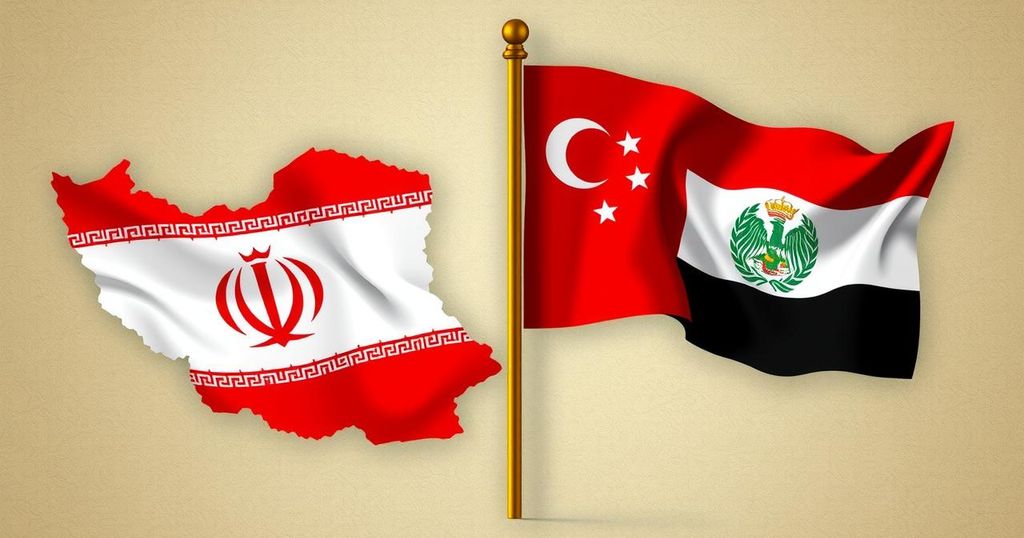Renewed Diplomatic Engagement: The State of Iran-Egypt Relations in 2023

The state of Iran-Egypt relations, historically marked by tension since the 1979 Islamic Revolution, is seeing new developments with Iranian President Masoud Pezeshkian’s recent visit to Cairo. This visit represents a significant thaw in diplomatic relations that have remained largely severed. Both nations are exploring opportunities for renewed cooperation amidst shifting regional dynamics, particularly following reconciliations among Gulf Cooperation Council states.
The recent visit of Iranian President Masoud Pezeshkian to Cairo for the D-8 Organization for Economic Cooperation Summit marks a pivotal moment in the historically fraught relations between Iran and Egypt. This visit is noteworthy as it is the first of its kind by a senior Iranian official in over a decade, highlighting efforts to rekindle diplomatic ties that have been languishing since the 1979 Islamic Revolution when formal relations were severed. While the two countries partially resumed communication a decade later, these interactions have largely remained limited to business engagements and the protection of mutual interests.
Throughout history, Iranian-Egyptian relations have oscillated between phases of collaboration and tension, shaped significantly by their respective political orientations. The pre-revolutionary era was characterized by Iran’s pro-Western stance under the Shah, contrasting sharply with Egypt’s pan-Arabism and hostility toward Western alliances, particularly during Nasser’s leadership. The severance of ties in 1950 and subsequent geopolitical shifts following the rise of Sadat in Egypt held the promise of reconciliation, albeit temporarily, during the 1970s.
The Islamic Revolution in Iran initiated a dramatic divergence in their foreign policies, particularly regarding the Palestinian cause and relations with Israel, ultimately leading to renewed hostilities. Subsequently, during the Iran-Iraq War, Egypt’s support for Iraq further complicated relations. However, a thaw began in the late 1990s under President Mohammad Khatami, leading to increased economic cooperation, suggesting a cautious willingness to reconcile despite historical grievances.
After multiple diplomatic overtures in the subsequent years, including visits by both Egyptian and Iranian leaders, no significant breakthroughs were achieved, until the regional context shifted markedly post-2021. Under President Ebrahim Raisi, there has been renewed impetus to explore collaboration, coinciding with a cooling of tensions between regional powers, such as the reconciliations between Iran and Saudi Arabia. Both Iran and Egypt appear poised to move towards re-establishing official diplomatic channels, with expectations of reopening embassies becoming more grounded following positive negotiations and exchanges of goodwill.
The state of Iran-Egypt relations has been one of the more complicated diplomatic narratives in the Middle East. Post-1979 Islamic Revolution, these two nations have struggled to normalize interactions, mirroring broader regional conflicts and shifts in geopolitical alliances. Historical grievances rooted in ideological differences, national security strategies, and external alignments have consistently shaped their bilateral engagement. The evolving dynamics of regional diplomacy have recently created openings for renewed dialogue and potential reconciliation, particularly as both countries grapple with the implications of a rapidly changing geopolitical landscape.
In summary, the current trajectory of Iran-Egypt relations reflects a cautious optimism, marking a potential shift in a longstanding phase of estrangement. Both nations seem increasingly inclined to rebuild trust and dialogue, driven by recent diplomatic dialogues and the broader regional context fostering cooperation. While significant challenges persist, a commitment to restore formal relations appears to be on the horizon, offering a glimmer of hope for more amicable interactions moving forward.
Original Source: www.tehrantimes.com








